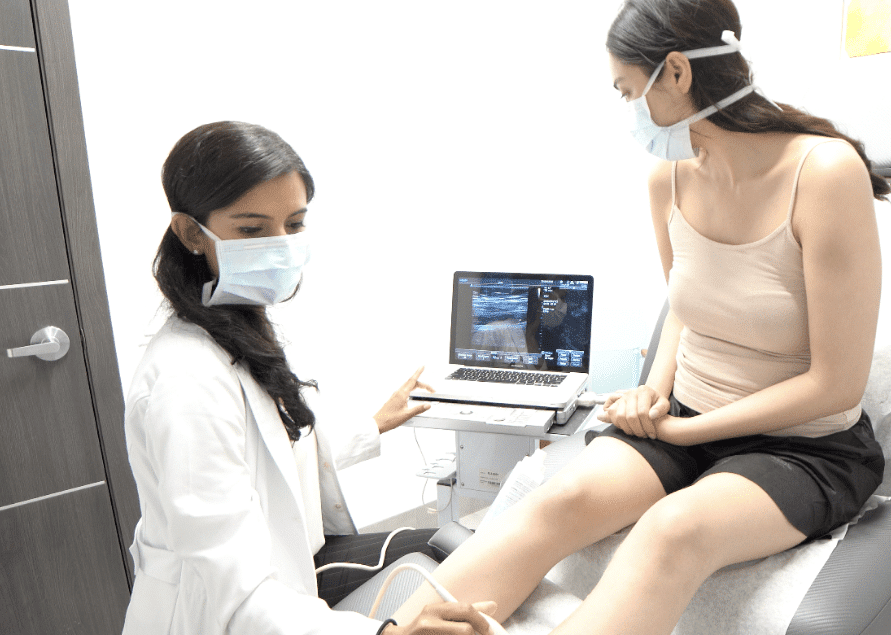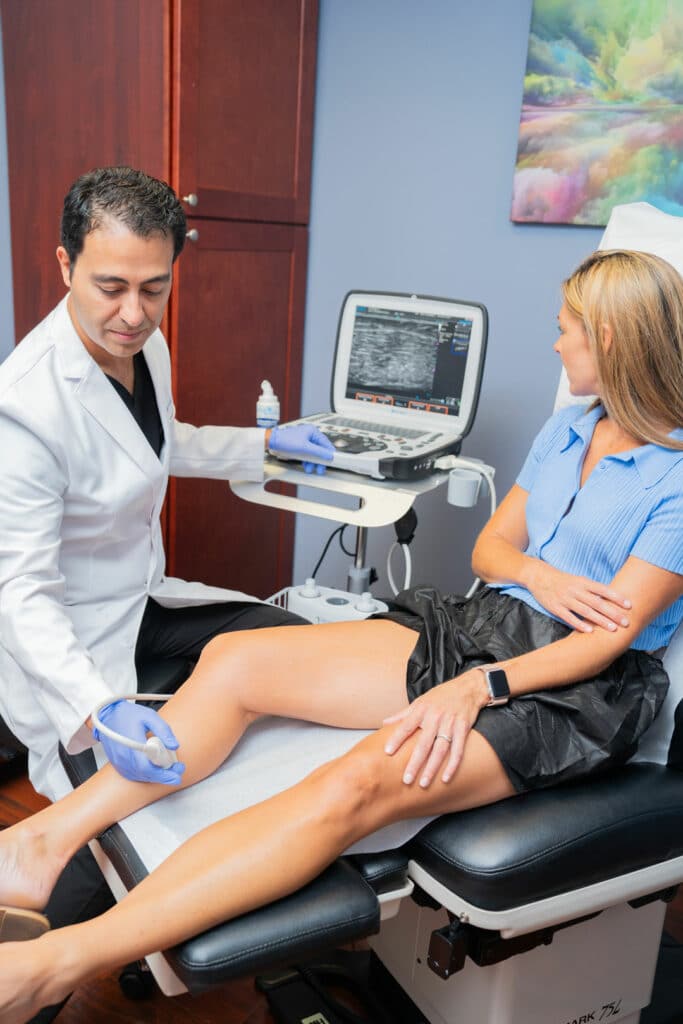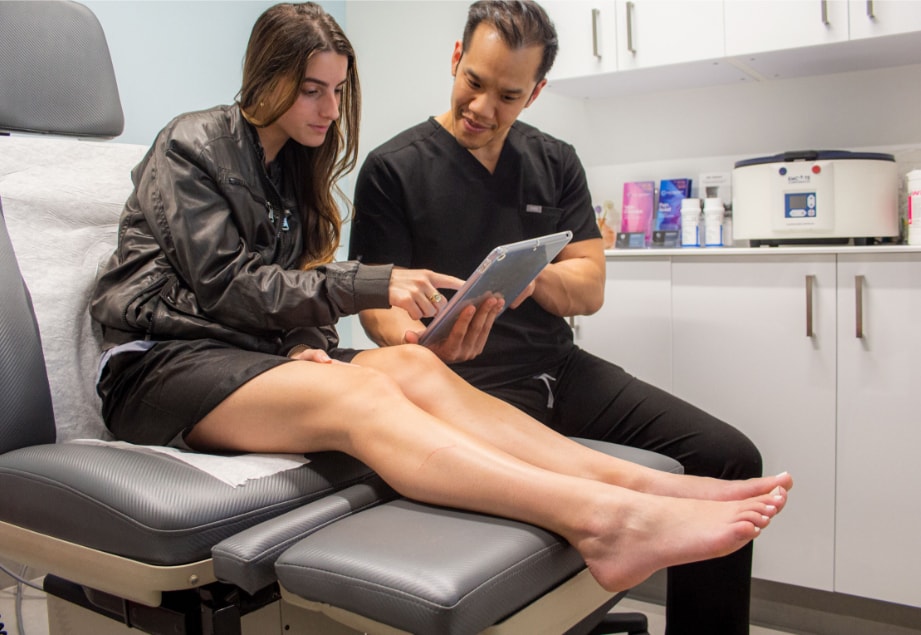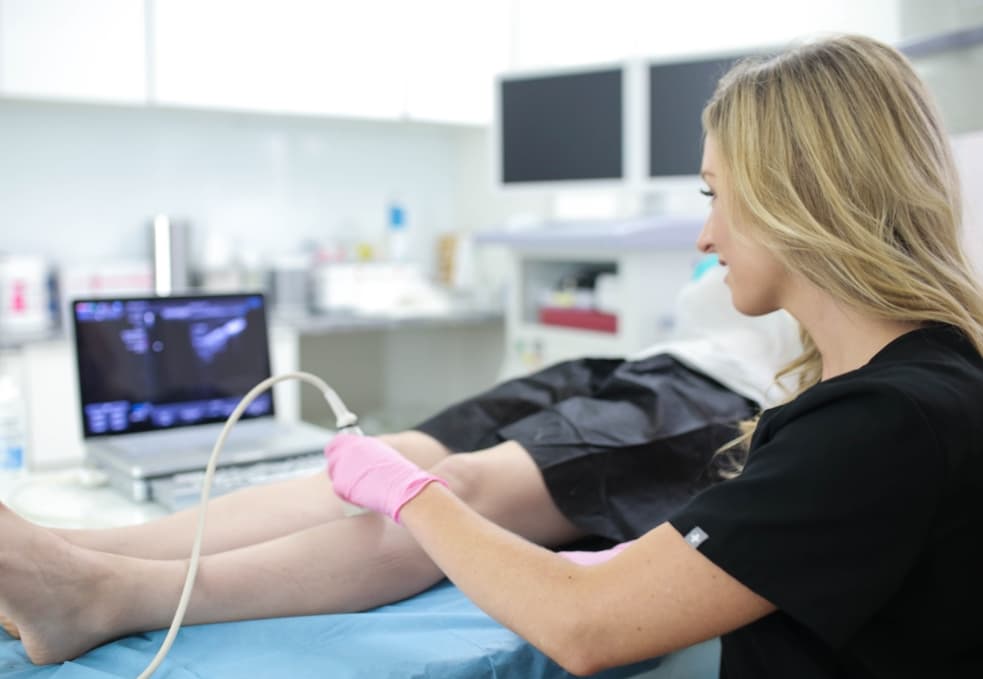Which doctor to consult for leg swelling?
Do you have swollen legs? Are your legs heavy and tired? Is your leg swelling accompanied by other symptoms, such as leg heaviness, restless leg syndrome, and leg pain? And do the symptoms of leg swelling worsen at night or after long periods of sitting or standing still? If you’ve said yes to some of these questions, there’s a strong chance your leg swelling is symptomatic of underlying vascular conditions.
If you identify with the questions and symptoms mentioned above, you need to contact a vein doctor for leg swelling. Vein doctors, medically known as phlebologists, are physicians with specialized training in the identification, diagnosis, and treatment of vascular conditions, such as restless leg syndrome, leg ulcers, spider veins, varicose veins, and chronic venous insufficiency. Leg swelling is one of the most common symptoms of vein disease, so you should contact vein doctors for a diagnosis and treatment.
When looking for vein doctors to consult for leg swelling, you must be careful. Inexperienced vein doctors usually focus on treatments for spider veins and varicose veins — not the root cause of vein problems. Your vein doctor must perform thorough ultrasound tests to visualize the blood flow in your leg veins, determine if your symptoms are truly caused by vein disease, and curate a personalized treatment plan that ensures long-lasting results.
Maryland Vein Center is led by board-certified vein doctors specializing in cutting-edge minimally invasive vein treatments. Our vein doctors always perform thorough venous ultrasound scans to visualize the blood flow in your leg veins, determine if you have chronic venous insufficiency, and curate a personalized vein treatment plan. We aim to stop vein disease from progressing further so you don’t have to suffer the long-term consequences of vein disease, such as spider veins, varicose veins, and leg ulcers.
Maryland Vein Center has a state-of-the-art spider vein center at 10215 Fernwood Rd, Suite 301, Bethesda, Maryland. If you’re in or around the DC Metro Area, please visit our vein center located outside Washington, DC, in Silver Spring. Please schedule an appointment to determine if your leg swelling is symptomatic of vein disease in Maryland.

What are the signs and symptoms indicating your leg swelling is caused by venous insufficiency?
Chronic venous insufficiency is the root cause of most vein problems, including leg swelling. If you’re wondering if your leg swelling might be caused by vein disease, you should look for the early warning signs of venous insufficiency. But before we discuss the warning signs of vein disease, let’s understand the background of this condition.
The human body contains two types of blood vessels — arteries and veins. The arteries carry oxygenated blood from the heart to your limbs, and the veins carry deoxygenated blood from your limbs to your heart. The veins in your legs must climb up to your heart, moving against the force of gravity. The veins contain valves that act as one-way doors, allowing blood to flow towards the heart but not backward. Chronic venous insufficiency is a circulatory disorder caused by malfunctioning vein valves.
When your vein valves collapse or malfunction, gravity forces blood to flow backward and accumulate in the leg veins. The continued accumulation of blood in leg veins disrupts healthy blood circulation in the legs and leads to vascular dilation. Over time, the unhealthy leg veins continue dilating and bulging outwards, leading to spider veins, varicose veins, and other signs of vein disease. Venous insufficiency is a chronic condition, so the signs and symptoms gradually worsen over time.
The earliest warning signs of vein disease include leg heaviness, leg pain, restless leg syndrome, frequent leg cramps, and leg swelling. If you notice these signs and symptoms, especially if they worsen at night or after long periods of sitting or standing still, you should definitely contact a vein doctor. Most people misattribute these symptoms to aging, which leads to the progression of vein disease, leading to additional problems, such as spider veins, varicose veins, leg ulcers, skin discoloration, and deep vein thrombosis.
If your leg swelling is accompanied by any of the signs and symptoms mentioned above, please visit your vein doctor in Maryland. The longer you leave vein disease untreated, the worse the symptoms will become.
How to reduce the symptoms of vein disease?
You can implement some lifestyle changes and habits to minimize the symptoms of vein disease and prevent the condition from worsening. Please note that lifestyle changes and home remedies can’t treat vein disease — they can only prevent the condition from worsening. The only way to treat vein disease is to remove the damaged vein, which will reroute the accumulated blood into healthier leg veins and restore optimal blood circulation to the heart. As such, all home remedies can only offer temporary relief from the symptoms.
The following lifestyle changes can alleviate the symptoms of vein disease:
- Wear compression stockings
- Engage in cardiovascular exercises that activate your calf muscles, such as running
- Don’t sit or stand still for long periods of time
- Reduce your salt intake
- Elevate your legs above your heart’s level while sitting
How to treat leg swelling caused by vein disease?
Natural lifestyle changes and home remedies might alleviate the symptoms of vein disease, including leg swelling, for brief periods. But these aren’t permanent solutions. The only way to treat leg swelling permanently is to treat underlying chronic venous insufficiency using minimally invasive vein treatments, such as radiofrequency ablation, laser ablation, and venaseal. Our vein doctors perform thorough ultrasound scans to diagnose and treat the root cause of your vein problems, ensuring safe and long-lasting results without downtime.
Please schedule an appointment to determine the root cause of swollen legs in Maryland.





